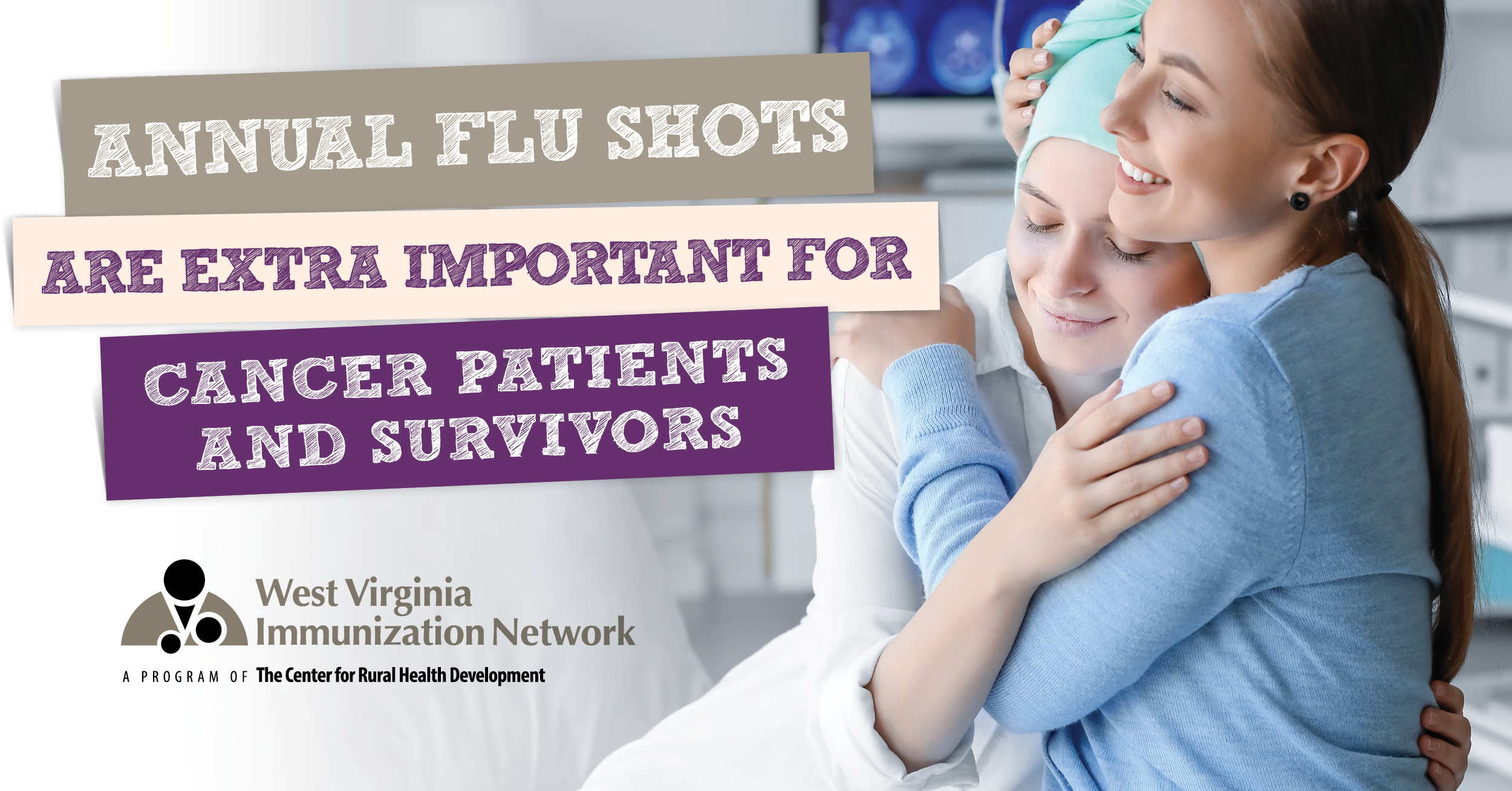
Flu season is here, and having cancer, or being a cancer survivor can increase your risk for flu complications and hospitalization. Protecting yourself from the flu is recommended for cancer patients and cancer survivors because the flu can be serious and sometimes life-threatening. It is also important for people who live with or care for cancer patients to be vaccinated against seasonal flu to reduce the risk of getting the cancer patient sick.
What should cancer patients know about the flu vaccine?
An annual flu shot is recommended for cancer patients. Be sure to talk with your healthcare provider about which vaccine would be recommended for you. It’s also important to know that the vaccine doesn’t always work as well in cancer patients, especially those currently receiving treatment, as it would on a healthy individual. However, it can still reduce the severity of influenza and its complications, which is why it is recommended for cancer patients and survivors.
When should I get my flu shot?
Generally speaking, the best time to get the flu shot is in September or October. If you haven’t gotten your annual flu shot, it’s not too late! The flu typically circulates until spring, sometimes as late as May. Getting vaccinated now can still provide protection throughout the remainder of the flu season.
Is there more than 1 type of flu shot?
There are several vaccine options for the 2023-2024 flu season. All of them protect against the 4 different flu viruses expected to be circulating this flu season.
If you are 65 years or older or if you have an egg allergy, talk with your doctor about the different options available to you.
People who are pregnant, less than 2 years old or older than 50, have a weakened immune system, or are a caregiver for someone who has a weakened immune system, should not receive the nasal flu vaccine.
Are there other things I can do to protect myself from the flu?
Getting your flu shot is just the first step. Remember, if you have a weakened immune system, your vaccine might not be as effective as it would be in a healthy individual. These extra steps will help to keep you safe.
Here are some other ways you can protect yourself this flu season:
- Encourage those around you to get their annual flu shot.
- Wash your hands frequently.
- Avoid crowds.
- Cover your mouth and nose when you cough or sneeze.
- Consider wearing a mask when visiting public places, like your healthcare provider’s office.
- Stay home if you are feeling sick, and let your doctor know about your symptoms.
- Sanitize common surfaces that you touch often such as your phone, doorknobs, faucets, and appliances.
What should I do if I get sick?
If you have cancer and start experiencing symptoms like a fever, runny nose, sore throat, or coughing, you should see a doctor right away. Even if you get the flu shot, there is still a chance you could get the flu, but having the vaccine should make the infection less severe. There are effective treatments for the flu, but these must be administered within 48-72 hours of the onset of symptoms.
For more information about influenza, the flu shot, and treatment options, talk with your healthcare provider and visit the American Cancer Society influenza webpage.

